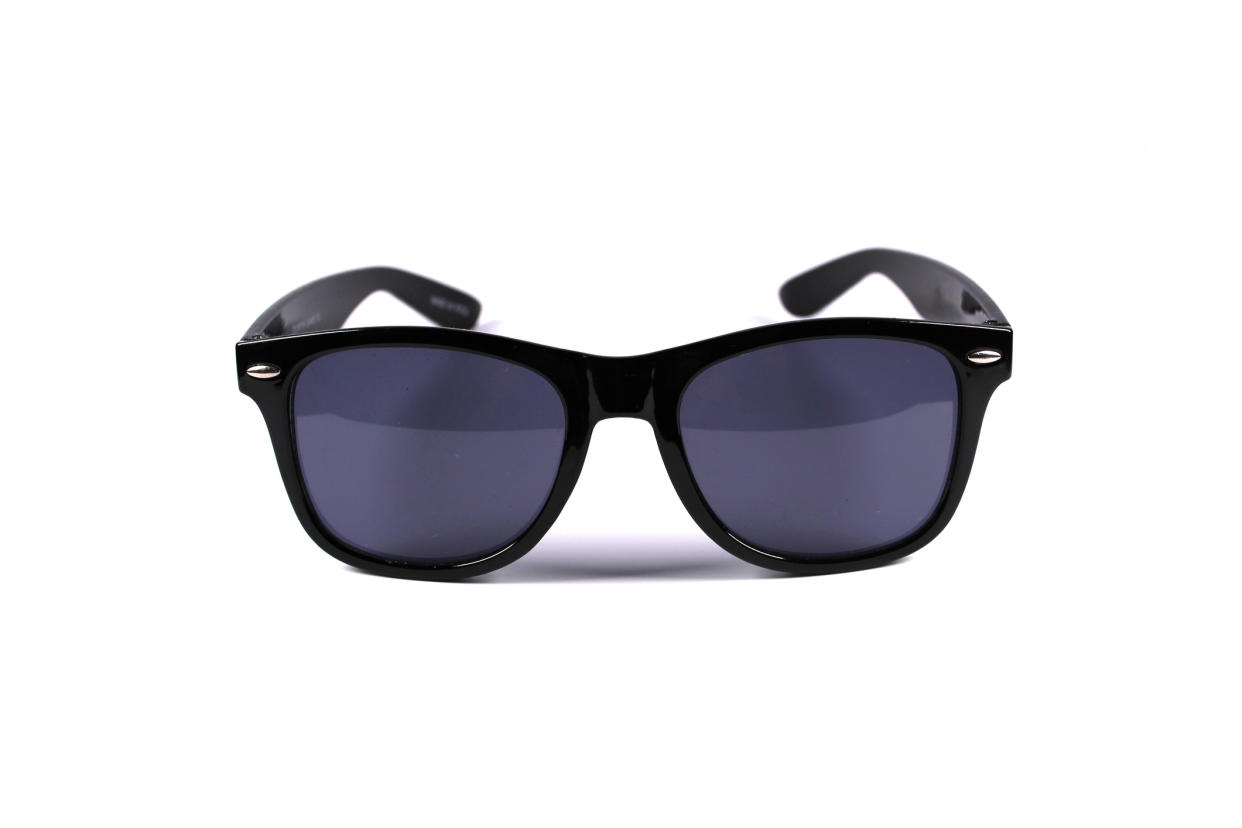Are $5 sunglasses just as good at protecting your eyes as more expensive pairs?

There’s a wide price range when it comes to choosing a pair of sunglasses. You could spend just $5 or shell out hundreds for a pair you like.
That naturally raises a big question: Are your eyes as well-protected from harmful UV rays with inexpensive sunglasses as they are with swankier pairs? The answer is a little more complicated than you’d think.
What are sunglasses supposed to do, exactly?
Sunglasses aren’t just there to make you look cool — they’re designed to block out UVA and UVB light to help protect your eyes. The sun’s UV rays can damage your cornea, lens and other parts of your eye. That can lead to conditions such as photokeratitis, which is a sunburn of the eye, as well as cataracts, cancer of the eyelids and more, according to the American Optometric Association (AOA).
Good sunglasses should block out 99 to 100 percent of UVA and UVB light, screen out 75 to 90 percent of visible light, and have a frame that fits close to your eyes and contours to the shape of your face to help prevent UV exposure from all sides, the AOA says.
How are you supposed to know if your sunglasses offer good protection?
Sunglasses are actually considered medical devices by the Food and Drug Administration (FDA) and should meet certain quality standards. A decent pair of sunglasses should have a sticker or tag on them that specifies that they offer UV protection, Angela Tempesta, an optometrist at Wills Eye Hospital, tells Yahoo Lifestyle.
“The inexpensive $5 pairs should perform the exact same as the $200 pair in terms of UV blocking,” Aaron Zimmerman, an associate professor of clinical optometry at the Ohio State University, tells Yahoo Lifestyle. “The optical quality will likely be of better quality with the more expensive pair, but the UV blocking performance will be equitable.”
Here’s the thing: It’s hard to know for sure if you’re getting full protection without having your sunglasses tested. “The sunglass industry is loosely regulated, and unfortunately, some manufacturers falsely label sunglasses as 100 percent UV protection when, in fact, they are not,” Tempesta says. “Consumers have little guarantee that what the protection they think they are buying is real.”
Video: Meet Sunglass Designers Coco and Breezy
In general, you’re likely okay on UV protection if you buy your sunglasses from a reputable store or brand. “The vast majority of sunglasses sold in the United States will protect your eyes from UVA and UVB,” says Zimmerman.
But, if you’re not sure where your favorite pair stands and want to have them tested to see how much UV light they block, Tempesta says, “You can bring them to most eye care providers or optical locations to be tested in a photometer to determine the level of protection.”
When it comes to buying sunglasses, it’s important to make sure you’re actually getting proper protection, Tempesta says. Couple that with regular eye exams, and you should be just fine. “Many of the ocular diseases caused by prolonged UV exposure can slowly progress over time and may not have any obvious symptoms to the patient,” she says. “It is important to have yearly comprehensive eye examinations to detect early signs of these diseases so they could be managed and treated properly.”
Read more from Yahoo Lifestyle:
The best summer sunglasses for every face shape, according to experts
Your complete guide to choosing the perfect summer sunscreen
10 beauty products under $10 you need for your beach bag this summer
Follow us on Instagram, Facebook and Twitter for nonstop inspiration delivered fresh to your feed, every day.

